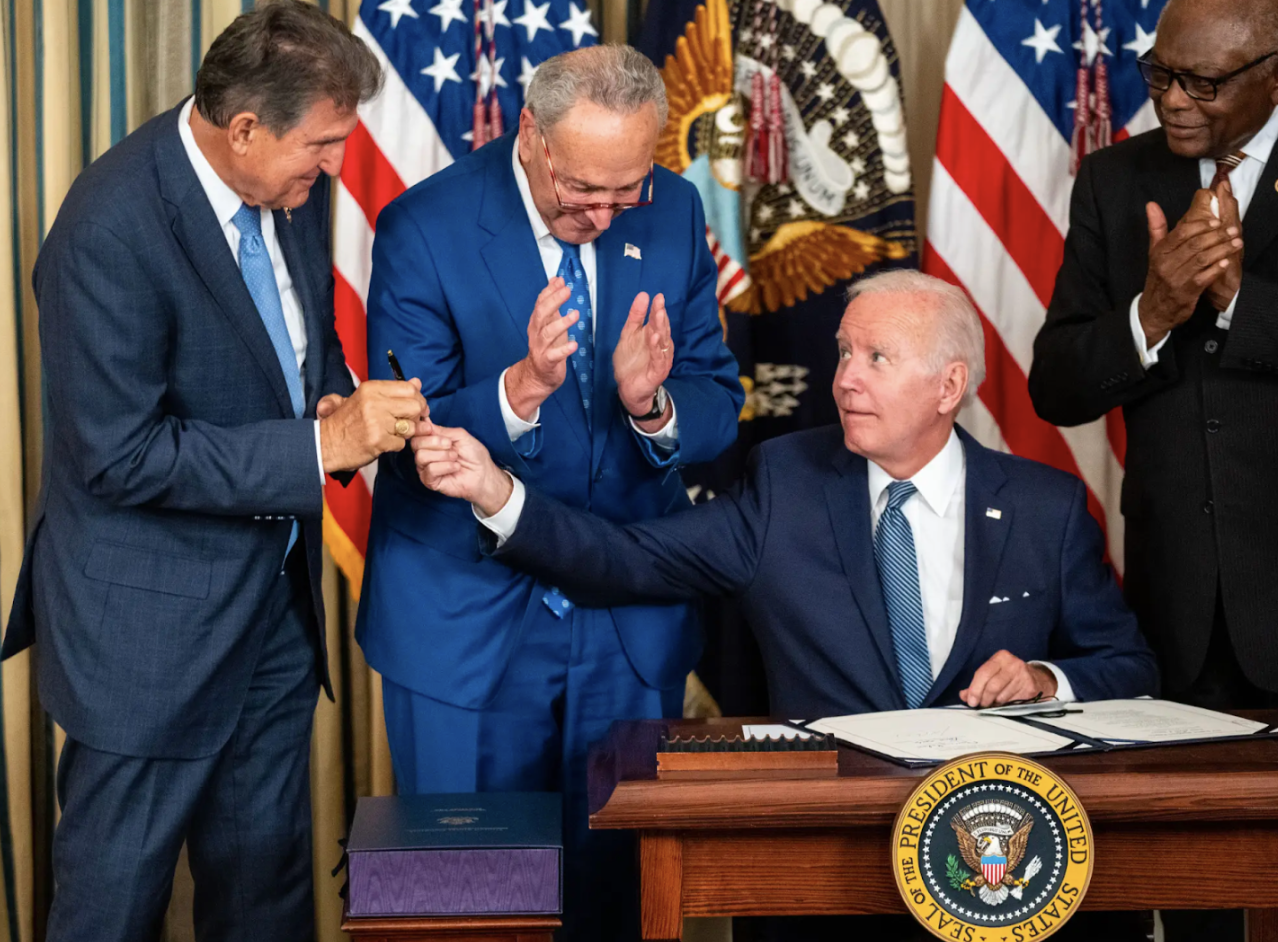
BY ERIN KIM
As President Joe Biden signed the Inflation Reduction Act into law, climate activists Suhaila Cotton, Sebastian Lemberger, and Ian Harrison both applauded and sighed from states apart.
Cotton, who hails from Cambridge, Massachusetts, is a Field Representative with “Our Climate,” a youth-led national climate organization, while Lemberger is a climate lobbyist from Louisville, Kentucky. Harrison, based in Boulder is Colorado’s Conservative State Lead for “Citizens’ Climate Lobby,” a non-profit grassroots advocacy organization. They are three of the millions of climate activists demanding healthcare, economic and social climate-based reform, and have fought for many years to make the Inflation Reduction Act a reality.
“As good as the Inflation Reduction Act is, it is also quite obviously a compromise,” Lemberger said. “This is likely because of Senators Manchin and Sinema, two moderate democrats who had very high negotiating power in getting the bill passed. Manchin’s influence is not only present in the reduced sum that the Inflation Reduction Act pledges, but also in some sneakily hidden clauses in the bill.”
The Inflation Reduction Act, enacted on August 16 with a tie-breaking vote by Vice President Kamala Harris, aims to combat climate change, lower health care costs and cut the deficit. In particular, the bill includes the most extensive measures to reduce domestic climate pollution in the nation’s history, with a $386 billion investment in climate and energy, according to the Congressional Budget Office.
However, all three activists saw the drawbacks of the Inflation Reduction Act, especially given that the act serves as a reconciliation bill following Build Back Better’s stalemate in Congress. Lemberger’s disappointment with the Inflation Reduction Act stemmed from its dilution of the amount pledged to address climate change compared to Build Back Better’s originally proposed budget.
“While it pledges a significant amount of money to climate change, the bill also leases several thousand acres of land in Alaska to oil and coal companies and protects the construction of a large oil pipeline through the Appalachian mountains,” Lemberger said. “These clauses are likely what bought Manchin’s approval of the bill, as his prior resistance to similar legislature was quite adamant.”
Harrison shared a similar sentiment with Lemberger and emphasized that the Inflation Reduction Act had to be limited to budgetary issues due to the act being a reconciliation.
“In scope and impact, it is a shadow of the original aspiration, and notwithstanding the widely reported 40% reduction in greenhouse gas emissions, this bill is expected to accelerate emissions reductions to 40% below 2005 levels in 2030, compared to 30% under current policy,” said Harrison.
Also stemming from this compromise, Cotton said that her main issue with the Inflation Reduction Act is its large amount of tax credits.
Nonetheless, Cotton remained hopeful about future legislation the Inflation Reduction Act may inspire, particularly given the Act’s intersectional view of climate change.
“It’s finally a large step in the right direction that finally handles some of the intersections of climate change,” Cotton said. “It isn’t just greenhouse gas emissions and the effect on nature but how and where those greenhouse gas emissions are emitted.”
Harrison is excited about the act’s passage with limited opposition. In particular, he said he looks forward to more bipartisan legislation after seeing through the Inflation Reduction Act that such legislation is, indeed, a possibility.
“As the Inflation Reduction Act came into view, some Senators called energy companies to rally opposition. It is notable that, with the exception of some press releases, few rallied to the flag… the common theme seems to be that the political will existed to pass it, so why bother fighting it,” said Harrison. “I suggest that this would hold true for most bills and gives me hope that significant, enduring and bipartisan legislation is possible and that the fabled power of external opposition only enters the arena when there is a lack of political will.”
Another part of the bill — lowered health care costs — gave Cotton hope. Cotton said the healthcare improvements come hand in hand with the bill’s efforts toward climate, considering how a given community’s prevalence of pollutant-emitting factories and highways often predicts the eventual presence of life-threatening health effects like emphysema or cancer.
“Our own Springfield, Massachusetts being the asthma capital of the U.S for a while—now it’s some city in Pennsylvania—the clean energy investments were great, but the health care improvements were what I was looking for,” Cotton said. “Climate action can’t just be improving the future but addressing the effects of our past.”
According to an April-May 2022 FiveThirtyEight poll, 52 percent of Americans believe that the most important issue facing the country is inflation. 16 percent of Americans believe that climate change is the most pressing issue.






